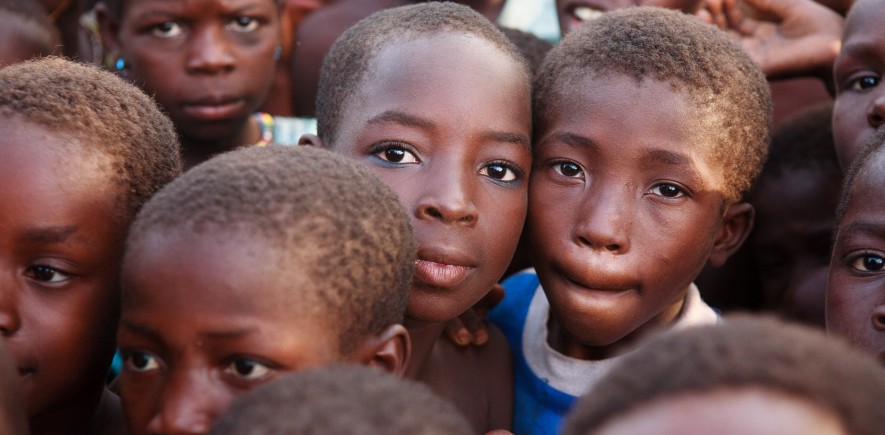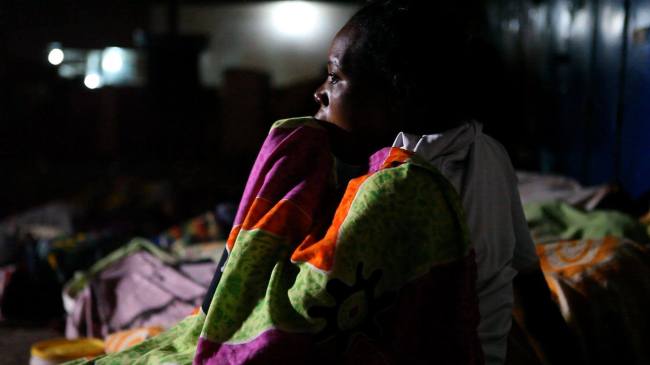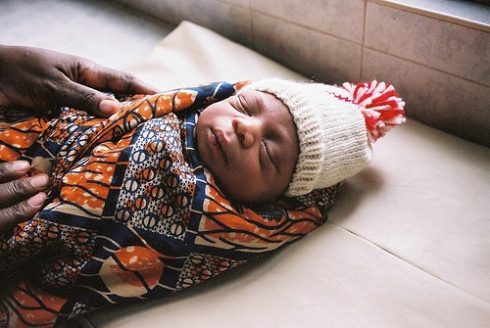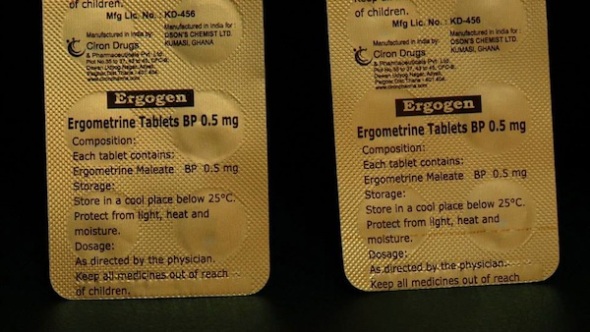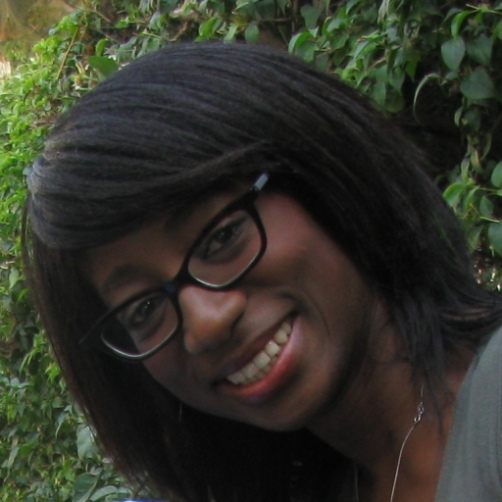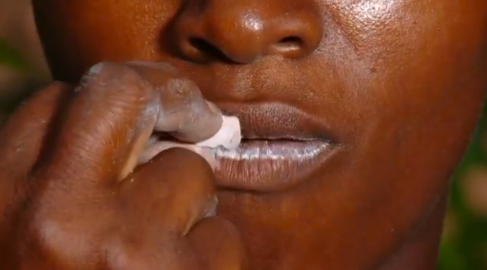We came across this very interesting interview with Bernard Avle, host of Citi FM’s morning show as well as their news director, with enewsgh. He had some thought-provoking views, read them below:
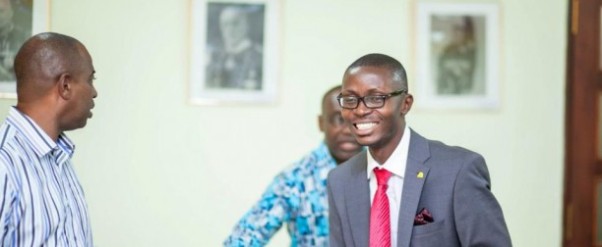
I believe readers want to see your face and know you more.
So you are here to expose me.
Somehow
I like radio because it keeps you anonymous and if you keep your mouth shut, nobody knows you. So many times I walk into a shop and when I speak, they go like “oh I know that voice” then I know I’ve been caught. As broadcast journalists, our voice is our most prominent feature. I like it like that. That is why I don’t do many interviews and come on front pages. Radio is my thing.
But you now have a following and a story that can inspire people.
Yeah, actually, you are right. When you do media for a while and people start trusting you, you have a responsibility to open up. You alluded to my story but I don’t think my story is too extraordinary. I was lucky. When I entered Legon, I got to Radio Universe. Not many people get that opportunity. It was a very good trainer, so for four years, I was doing like an internship where I was actually being trained on the job. I got serious training from people like Alhaj Abubakar Sadique, Francis Ankrah, working with a very strong team of student mentors for four years.
By the time I finished my degree in 2004 and Citi FM was about to start, I was already ready. That’s way I said I was lucky. I hit the ground with some experience.
You hit the ground running
I did not hit the ground BAM! When I hit the ground I was running. Some hit the ground and stay there.
Your voice was so different from what they call “radio voice”.
Two reasons: I don’t have a very deep voice or the so-called radio voice. I remember some even wrote articles and said I can’t do morning show and that I should just remain with the news because my voice was not flexible enough.
Secondly, if you listen to Citi FM and compare us to other stations, you would realize we don’t boost up our sound. We prefer a cleaner sound especially because of the talk that we do. So my voice did not receive any extra boosting. The good thing about that was that it made me sound very different.
Again, aside the clear voice, we wanted to run the station in a way that it would be issues-based. So the issues being discussed would keep you glued to the station rather than focus on the voice.
For me the measure of success is when people tell me that Bernard, you made me late for work today because I could not stop listening to you.
How has the journey been so far?
It has been by grace. Because radio is a calling.
A calling? From who?
A calling from God.
Like God calls people to do ministry work?
But you see, ministry is not restricted to pulpit ministry. Newspaper is a ministry; it is a service. Radio is a service. Every job you do is ministry. God is working through the gift He has given you to affect society positively. If you don’t approach your job with that mentality, you would feel people owe you something. God has given you a gift and a platform to express that gift and you are being paid for it so you must see it as a service where you can’t spend the three and a half hours discussing frivolity.
If you don’t see it as a ministry, you may think you are wiser than others or because politicians like you and they give you favours, then you begin to tow their line. But if you see it as a ministry, you would realize you have to account for the three and a half hours every morning. How many positive things did I discuss or what was my contribution to making society a better place.
If I was born in 1950, there is no way I would be doing this job because there would be no private radio. We were lucky when we were born in the early 80’s, by the time we were ready for radio, there were all these radio stations. Those of us in the media must be ready for the free dispensation and liberalization of the airwaves.
This is not a coincidence. God has a purpose for putting myself and all these young guys on morning radio at this time. Look at myself, look at Radio Gold and it is Suhuyini, Joy; Kojo Nkrumah before he left. We are all around same age. God has a special plan for that. This is a ministry not just a job.
Has it been fulfilling, rewarding, adventurous or regrettable?
It has been fulfilling, humbling, rewarding, and tricky. When we started this thing, a lot of people thought we were coming to copy Joy FM and just add to the numbers. It was not easy but in the nine years, I have learnt a lot about life, what it takes a business to succeed, I can tell a start-up company that it would be successful if it is consistent. I would never have learnt that if I had immediate success. It has been a very good life learning experience; a journey of new discoveries every day.
You are a born again Christian on morning radio.
I was in church last Sunday and after leading prayers, someone asked me if I am the one who plays all those songs on my morning show. When you have a calling God gives you the grace to do what others cannot do. Some believers think that because they are heaven-bound, they have no use on earth.
My philosophy is that if the only reason God saved me was to take me to heaven, He should have killed me the next day after He saved me because the temptations I am exposed to here would make it difficult for me. But God left me here to make an impact and bring the semblance of heaven on earth through the kingdom concept.
There are certain things you must know and learn to survive in this industry. You can’t say because I am a Christian then I would leave everything to chance. There are things you must plan and prepare properly for. Wisdom is the ability to discern the difference between what is from man and what is from God. I am able to survive as a born again in broadcast journalism because I know how to give unto Caesar what is Caesar’s and to God what is God’s without rubbing any other.
Does doing this balance require some special skills?
It takes grace.
What is this grace, grace, grace you keep talking about?
I don’t want t go into Theology. …Grace is the main thing. The most important feature of our religion…it is a diving enablement, divine favour and it helps you to achieve more than you could achieve on your own.
You had a private wedding. Why?
I invited a lot of media friends to my wedding. Let me explain something to you. When you are in the media, you are not a celebrity. There are media personalities who are celebrities. Jessica possibly, Kwame Sefa Kayi possible, Jocelyn Dumas, some of them have transcended just been on radio and on television to having a following. Some of us think because we are on radio our weddings are for public events. At the time I did my wedding in 2011 and even as at now, I don’t even want the word celebrity to be attached to my name.
Because as media people we interact with a lot of celebrities, we sometimes get into the news. This confuses us to think we are celebrities but in actual sense we are not. I don’t consider myself a celebrity and my wedding did not deserve any special attention.
Bernard you are saying this because you want to keep your privacy.
Well, because we interview politicians and government officials and sometimes we bring their private issues up, we can’t say we want to keep our issues private to ourselves. But there again, everybody deserves some semblance of privacy. I am not in public office. I am just in public space and there is a difference.
Have you started making babies?
That’s a very interesting question. It is God who gives babies. So when you say making babies, I am not a baby maker. We have been blessed with a son so far; a four and a half month boy.
And how many more are you expecting?
Oh you can’t tell. I don’t know. I have one and I am looking after him well. If God blesses me with one or two more, fine. But I do not think I want to go beyond three.
Please take us through your school life.
I had a very boring life until I got to the University. I was born at the Legon Hospital, went to the University Primary School at Legon, from nursery one to JSS 3, went to the Presbyterian Boys Secondary School at Legon, then went to the University of Ghana, Legon, went to Legon Hall, started at Radio Universe on Legon campus and then I came to Citi FM for national service. I used to live at Madina then Adenta all near Legon. In 2008, I travelled to the UK for my Masters. I went to the University of Warwick for my MBA. I studied Economics at the University of Ghana.
What is your take on talks that a Journalism school is not what makes one a journalist?
I think people would judge you by your output and not by your qualification. Some of the journalists I respect most in this country do not even have a university education. But people who have gone to university cannot stand up to them in a five-minute debate.
Secondly, the world is changing so fast and this is changing the traditional definition of jobs. Mind you, there is a whole new group of people called citizen journalists and they are not even trained journalists but they are at home tweeting and blogging and they are communicating.
So the communication and journalism profession particularly needs to be responsive to the changes. Because f you learnt journalism 20 years ago at GIJ, I can bet you there was no social media so the issues and approach and possibilities are different now.
Today, we have data journalists who do not even come on radio. I don’t think we should limit this to GIJ or AUCC. It is more about who occupies the communication space. I interviewed a medical doctor, Dr Buckle; a very articulate doctor. If you give him a medical programme to host, you can imagine the level and worth of knowledge he would be bringing on board.
People have become very knowledgeable and if we can’t respond to their needs appropriately, we would be wasting their time. The branding and strictures and definitions are not necessary.
What should Ghana expect from Bernard Avle in 2014?
Citi FM has tried to be very innovative and never afraid to try new things. Some have failed while some have worked. More such things are coming up. We would never stop innovating because people’s needs change so fast. So we would bring listeners new things. My life now is very tied to what Citi FM does because I am the director of news and I host the Citi Prime Time Breakfast Show, so asking what to expect from me is directly asking me what to expect from Citi because I am embedded in Citi.
It’s a rare thing that you have not been tagged with partisan politics after nine years on radio.
Time is the best judge of things and people. It is good you said nine years. If you had asked this question five years ago or three years into my career, I am sure people would have said different things. So let time be your vindicator. It is consistency that gives you the respect. I cannot attach myself to a political party because the problems we are discussing transcend partisan politics. It does not even make sense for me to even think of aligning to a political party.
If so, how come many journalists are openly aligning?
It is because we have overrated politics. And the politicians themselves have overrated their importance. That’s the problem. People recently did a demonstration at Prestea. It was neither NDC nor NPP and that’s where we are moving towards now.
Politics is important and it affects a lot of things but I believe the time is coming when people would stop the unnecessary political tags. The main issue is not politics. It is the incompetence of people who ought to work, be they politicians or not and regardless of which party is in power.
It is about what type of leadership we are experiencing at all levels. That’s why I don’t focus on the politicians. We do cover almost all the political events because it is part of our lives and drive everything but I am not interested in their politics.
Any final comments?
I think if Ghanaians read more, it would help us all. Trust me, if I take a DAILY GUIDE paper and I see the content – court cases, education, health, crime, social issues – I can run a million radio programmes just from the paper. If people want to understand their country, they should read more newspapers rather than allow newspaper reviewers to read the headlines and tell you what the stories are. That is unfair. Read it yourself because when a politician tells you what the news is, he may spin it.
